Editor’s Note: Over the coming months as Britain Brexits from Europe, we’ll be following six people in Romford, a town that overwhelmingly voted Leave, tracking their hopes and fears in this post-referendum reality. These are their stories.
In Romford Market a busker’s jaunty tune wafts over shoppers wandering under flapping Union Jacks.
“Stop your messing around. Better think of your future,” he sings.
Last month Romford delivered its own message to European lawmakers: Leave.
In Havering, the borough where the town is situated, 70% of people voted to exit the European Union, making it one of the places with the highest percentage of Leave voters.
This is not rural England, where so many Brexiters hailed from. Romford is a mere 17 miles from Parliament, but a world away from London’s liberal elite – some of whom were so disappointed by the outcome they’ve called for the capital to break away from the UK and form its own city-state.
Havering sits on the easternmost edge of London, where suburban sprawl gives way to empty fields.
Arriving in Romford by train, the greyhound racetrack looms on the left; neatly stacked shipping containers on the right.
With one of the whitest (at 83%) and oldest (median age 40) populations in London, many of Havering’s elderly residents originated from the city’s East End before moving further out.
“People in Havering, they’ve been pushed out of London – by foreigners, some cultures [and] house prices,” says Dave Crosbie, Leave voter and owner of Romford Market’s “The Better Plaice” seafood stall.
“So they’ve had to come out to the edge of London because it’s the only place they can afford now,” he adds in a cockney accent from his own childhood in east London.
The fishmonger who voted to Brexit
Dave Crosbie, 58, owner of “The Better Plaice” seafood stall in Romford Market.
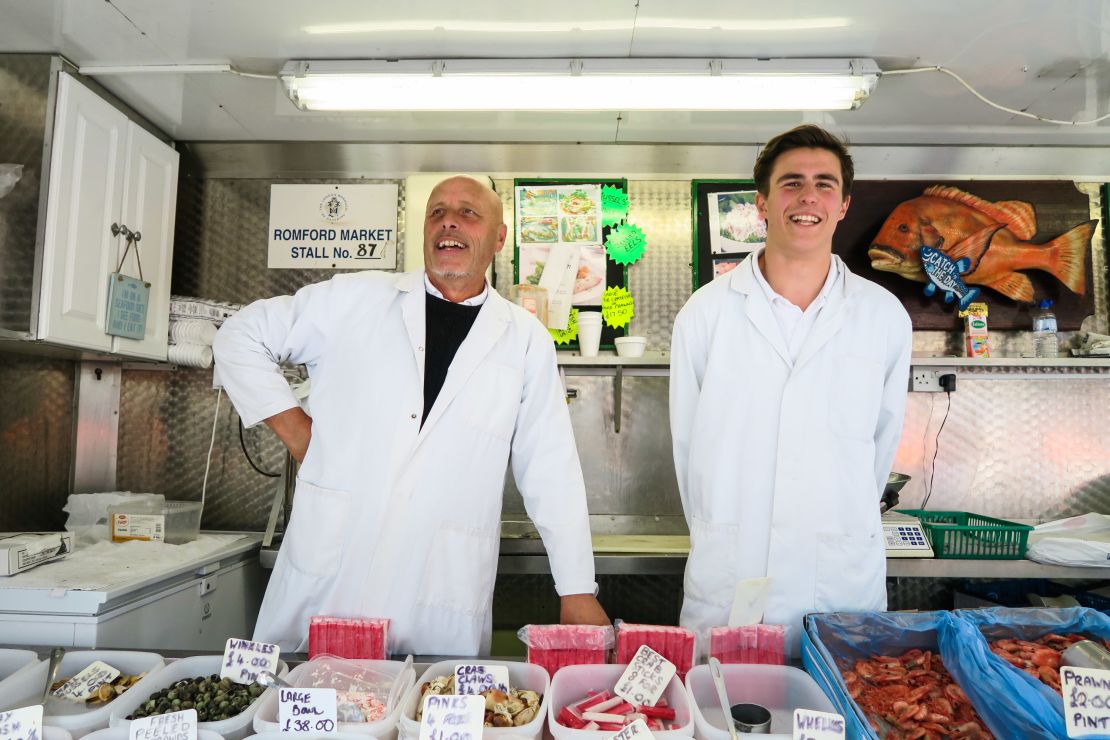
“My dad’s been in the fish game since the 50s. He was second generation, I’m the third,” says Crosbie, dressed in a white apron splattered with the day’s dirty work.
A Union Jack flies atop Crosbie’s seafood trailer, its refrigerated insides glowing with fish, mussels, and crab sticks.
He says that since the country voted for Brexit, he’ll be able to fly the English flag without people giving him “funny looks and asking if you’re a racist.”
“Now we can get back to our nationality a little bit more,” he adds.
Crosbie voted Leave because he “got fed up with silly rules coming from Europe, being told what to do by people that weren’t even voted in.”
“They come up with all these ideas and they just force them upon you.”
He points to EU fishing laws, saying the UK is paying the price for decimated fish stocks in the Mediterranean.
“When we joined the EU we had a 12 mile fishing limit [off the British coastline],” he explains.
“Now they’ve taken that away from us. So you can get 20-odd countries coming and fishing in our waters – which we looked after.”
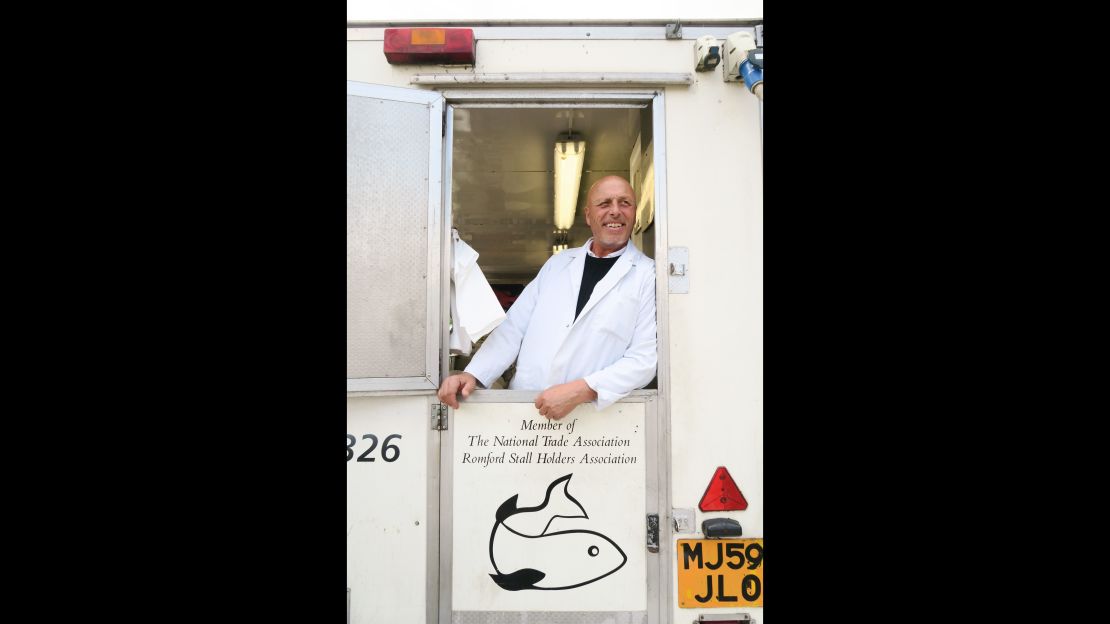
Fishing boats aren’t the only thing Crosbie would like to see limited from Europe.
“We’ve got uncontrolled immigration,” he says. “They’re coming over for jobs and bringing the family over.
“And because we’re quite good to people with our national health system, they’re coming over for everything we’ve got.”
Crosbie takes a drag of his cigarette and gazes across the market where he has gutted fish for the last four decades.
“We pay our taxes for everything. And then you get someone just turn up and they get somewhere to live, they get all the privileges that we work hard for,” he says. “And we get nothing.”
The mom who wanted to Remain
Angelina Leatherbarrow, 40, mother-of-two and former head of committees at nearby Newham Council.
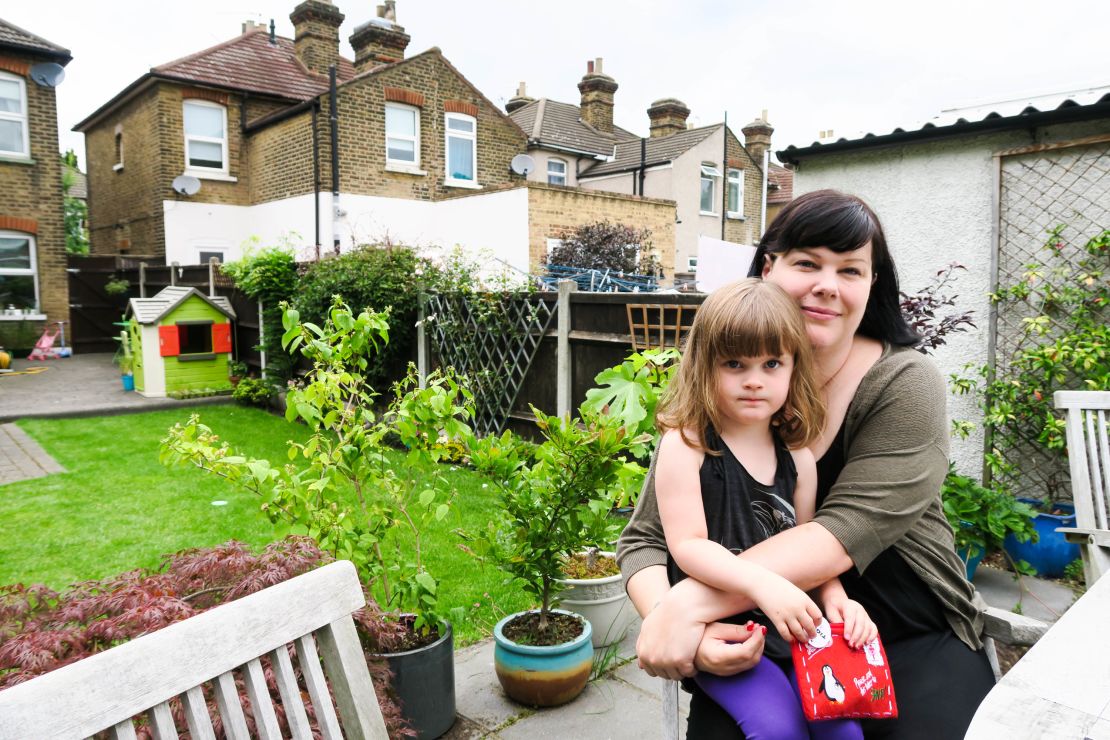
“My father was a migrant from Malta, and I would say I feel much more European than English,” says Angelina Leatherbarrow, who moved to Romford from London’s East End 10 years ago.
Looking out Leatherbarrow’s kitchen window, a trampoline and children’s playhouse adorn a generous backyard – yet after Havering’s overwhelming Leave vote, she’s considering moving from the borough.
“I know not everyone voted for xenophobic, racist reasons, but it was definitely there and we can’t keep pretending it wasn’t,” she says.
“The Leave vote has given a lot of legitimacy to people with those beliefs, and what does that mean for my girls growing up here?” Leatherbarrow asks as her eldest scrambles onto her lap.
“I want my daughters to be able to have the experience of working in Europe – how different will their lives be now?”
Leatherbarrow would like to move back to Bow where she grew up, a place with one of the highest immigrant populations in London.
“But you’ve got to be a millionaire to have a home with a garden there now,” she adds.
She’s concerned that once it’s out of EU, the UK will no longer be held to account on climate change and workers’ rights.
“I believe that we’re stronger as part of something united.”
The husband and wife on different sides
Emma Hamblett, 45, marketing executive who voted Remain. Tony Bush, 54, gardener who voted Leave. They have been married for 14 years.
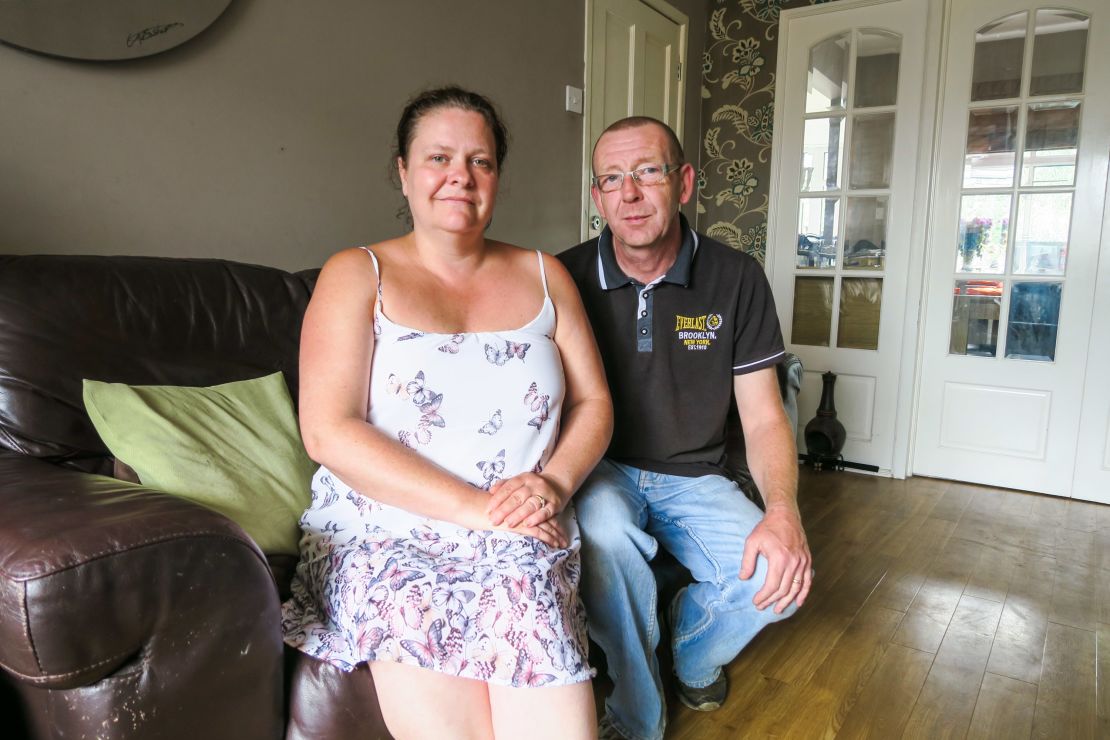
“I didn’t think he was serious when he first said he was leaving. I thought ‘he’s just doing it to wind me up,’” says Emma Hamblett with a hearty laugh.
But husband Tony Bush was deadly serious. And while the couple have clashed over Brexit, there have also been overlapping concerns.
Hamblett, a lifelong Labour Party member, fears their son Jake, who has disabilities, will be worse off without the protection of EU legislation.
“We’re going to be at the behest of a Conservative government that really doesn’t care about the poor, the disabled, the disadvantaged, or worker’s rights,” she says.
“It’s not just my son – it’s the whole disability community. I fear for them under a Conservative government that doesn’t have any reins that the EU would have put on them.”
Bush agrees. Though he had other reasons for voting Leave.
“I’m all for immigration, but we’re only a little country. And if you have too much more people coming into the country then our children are going to suffer,” he says.
“There’s got to be a limit. For the sake of housing, jobs, hospitals.”
Hamblett takes a deep breath before hitting back.
“It’s totally wrong that immigration causes the drain on housing – it’s government policy that causes that,” she says.
“And we haven’t had a government policy on housing in 20-odd years.”
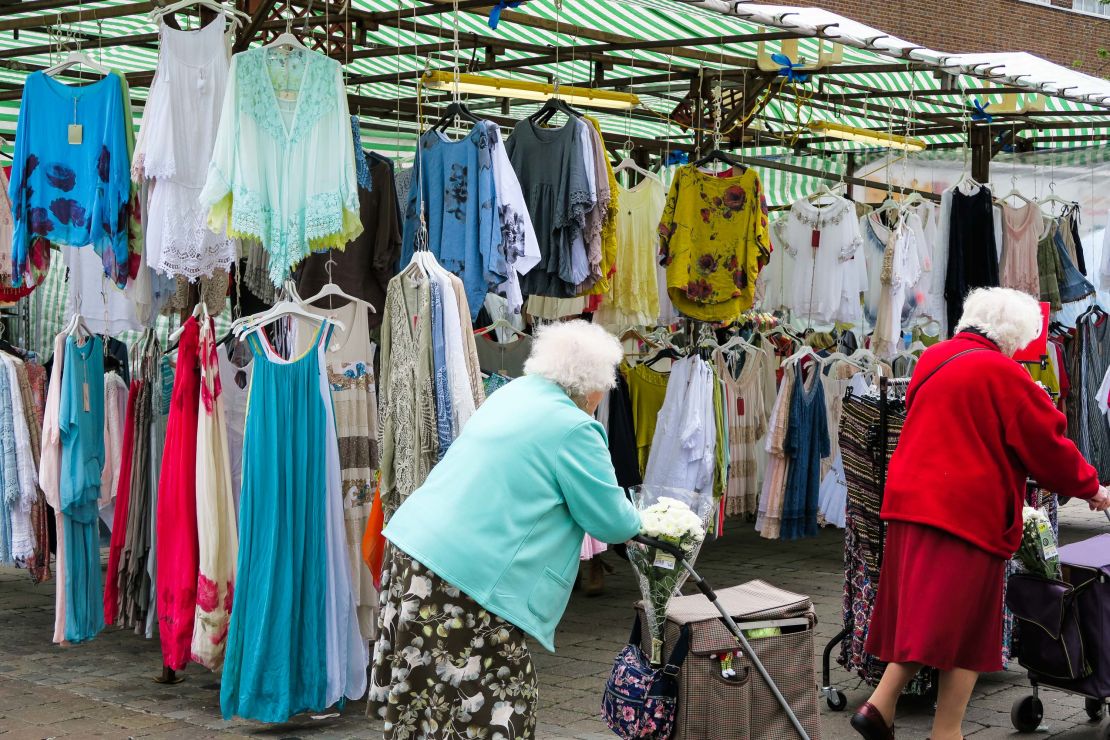
Bush says he voted Leave because he wants to see Britain “take back control” from lawmakers in Europe.
“When you got places like Greece that you got to bail out cause their economy has gone the wrong way, well, there’s enough poverty in this country,” he says.
Hamblett sees things differently – “By God, if someone’s struggling that’s what we’re there for.
“If we’re the strongest economy we should be helping, and I feel that we’re not helping by closing the door.”
Has Brexit taken a toll on their relationship?
“We’re a strong couple. Something like this wouldn’t break us,” says Hamblett. “But if ever I found out Tony voted Conservative – that would break us.”
The market stall owner with no ‘Regrexit’
Graeme Gibbons, 50, owner of Penny’s household goods stall in Romford Market for 25 years.
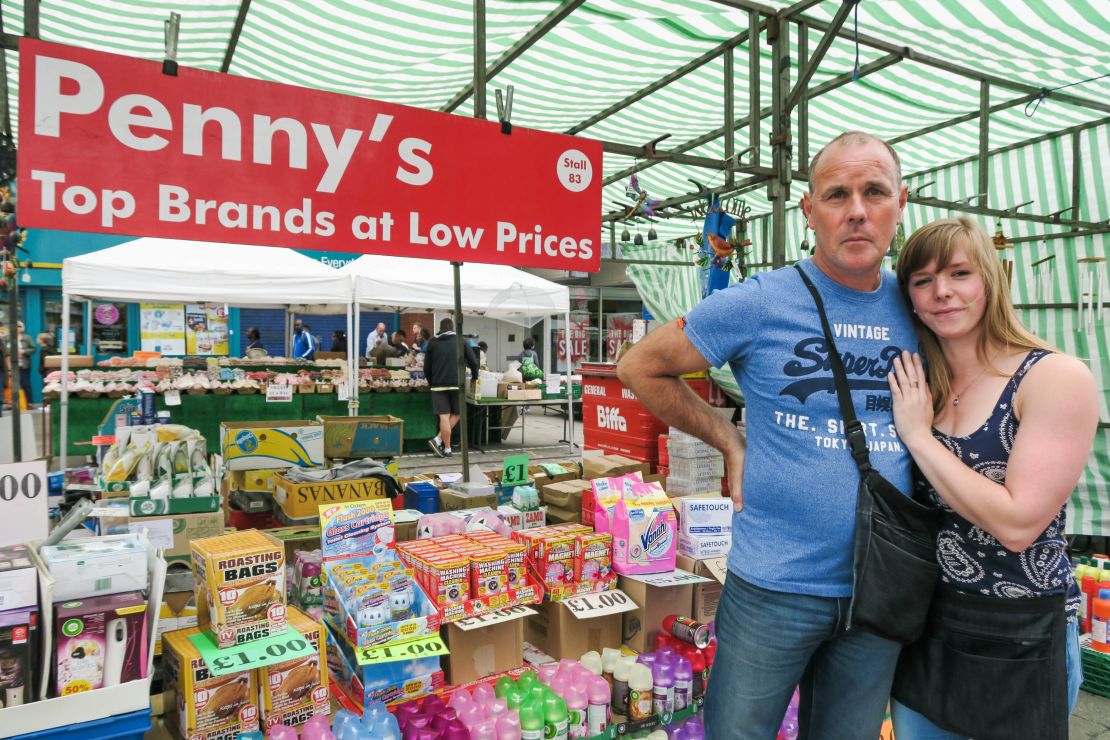
“We are a country of lions and we’re being led by sheep,” says Graeme Gibbons, in between helping elderly shoppers find the right cleaning product from his market stall.
“We need to make our own laws – why would I want a faceless bureaucrat in Brussels affecting my life and my business?”
Just a few meters from Gibbons’ stall looms the mega household goods store “Poundland” and he says he’s had to work his socks off to keep the business afloat amidst stiff competition.
“Some of my products come from Europe and I thought ‘maybe I will lose some of my lines if we vote out,’” he says, picking up an air freshener with foreign writing to show me.
“That’s something I had to weigh up when I voted. But I think it’s worth it.”
In fact, Gibbons is hoping Brexit will herald a “Made in Britain” manufacturing boom.
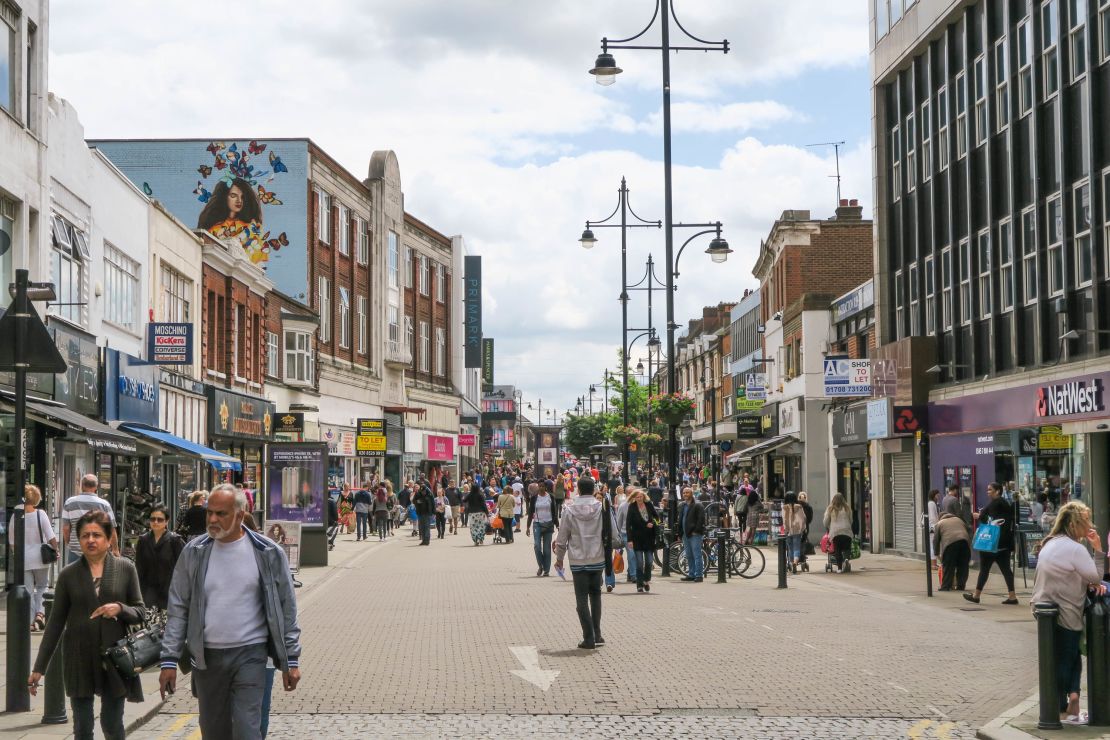
He says that while he’s got “lovely, house proud customers from all over the EU,” immigration was another reason he voted Leave.
“We’ve had a lot of people come here in a very short space of time and the local people haven’t had time to adjust to it – there’s massive pressure on jobs, housing, and hospitals,” says Gibbons.
“Sometimes you stand here and you don’t hear an English voice and it’s not good for anybody – not good for us, not good for them.”
He believes Brexit is the “medicine” for a country that was “unwell.”
“It doesn’t taste very nice now – but it’s going to do us good in the long run.”
The law student who voted to Leave
Connor Crosbie, 21, works at family-run seafood stall in Romford Market and is studying law.
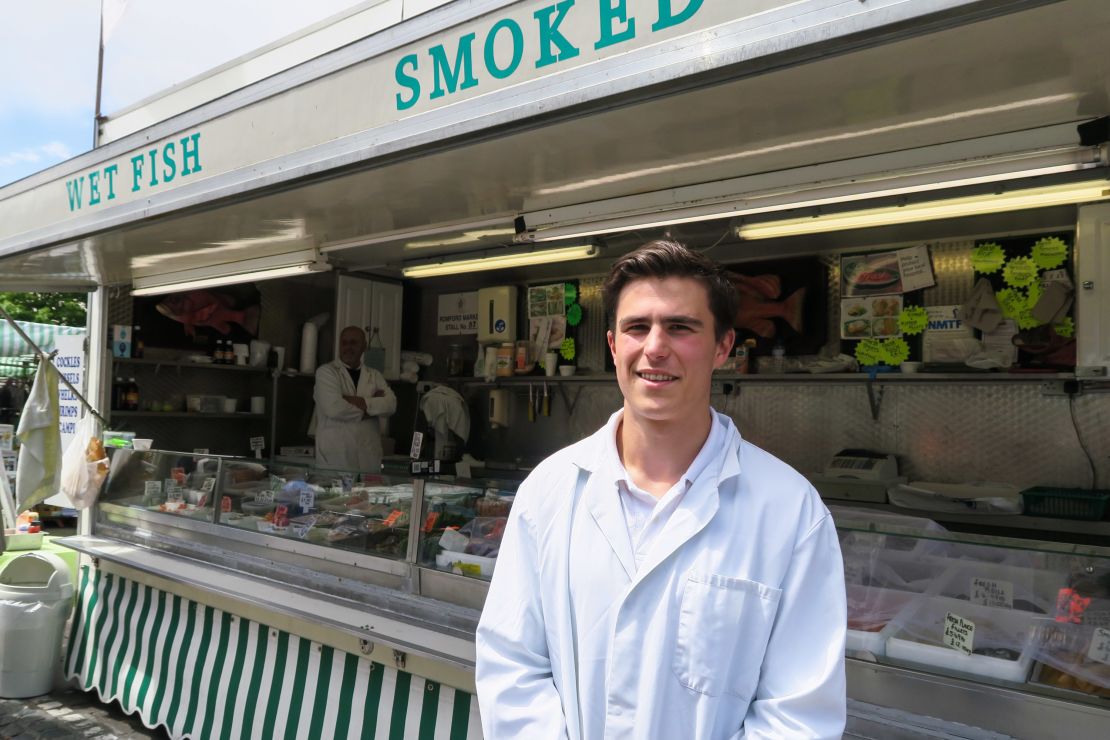
“I didn’t make my decision until about a week before because I didn’t want to jump right in and regret it later,” says Connor Crosbie, who when he’s not studying law at Swansea University in Wales heads back to Romford to help out on his dad Dave’s seafood stall.
He recalls engaging in half-hour “screaming matches” with good friends at university over the pros and cons before finally deciding to vote Leave.
A big reason for his decision was the Leave campaign’s claim that the UK would save £350 million ($461 million) a week by leaving the EU – and spend the money on Britain’s National Health Service.
The claim was later revealed to be false, and while Crosbie is “annoyed” at being misled, he doesn’t regret his vote.
After graduating from law, Crosbie was considering working in Belgium – though admits that’s less likely after Brexit.
“Obviously the national language of the EU is English. That’s probably going to change now,” he says.
“But I think it’s best to take the hit for yourself and hope for the best for your country.”
Crosbie wanted to see a Remain prime minister negotiate Brexit and thinks that ultimately “not much is really going to change.”
“I think we’ll get a trade agreement similar to Switzerland or Norway, which would be really nice because then we’d have a reduced figure on how much we’re spending on the EU,” he says.
“Though if we did, the EU is going to be pretty annoyed at us.”




